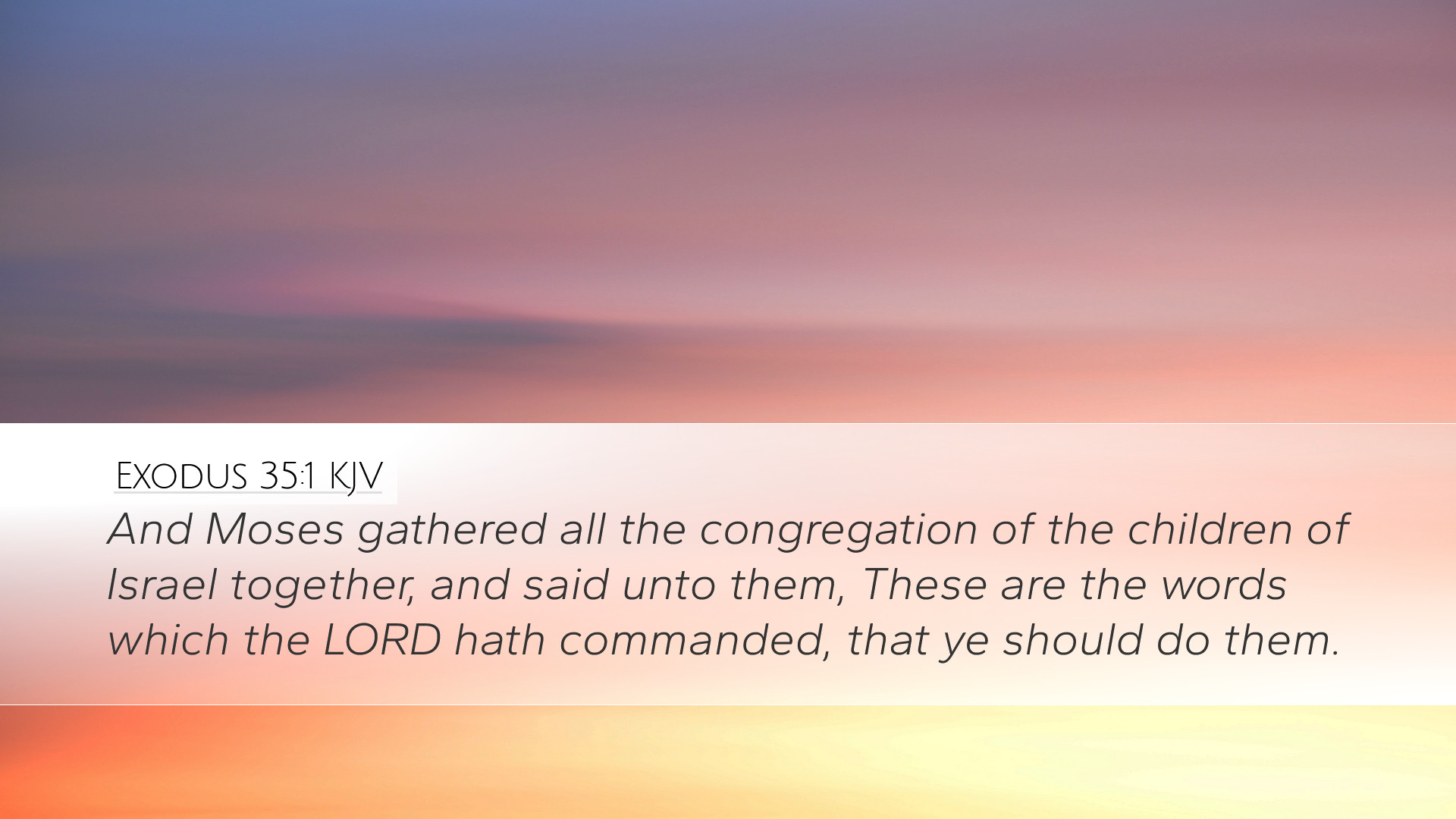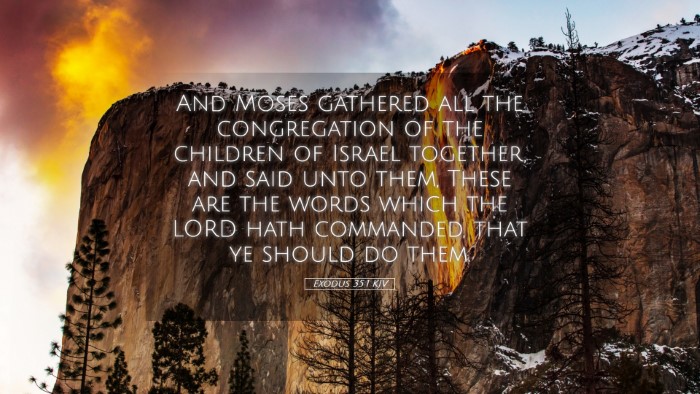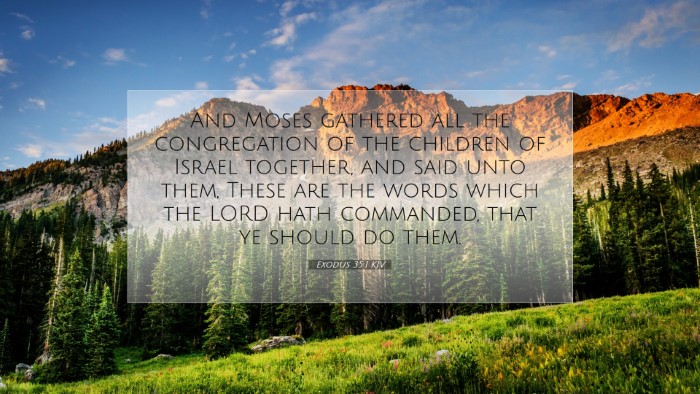Exodus 35:1 - Summary and Commentary
Verse Reference: Exodus 35:1
“Then Moses assembled all the congregation of the children of Israel, and said unto them, These are the words which the LORD hath commanded, that ye should do them.”
Introduction
The verse stands as a pivotal moment in the narrative of Exodus, encapsulating both the authority of Moses and the divine mandate given to the Israelites. This gathering symbolizes a crucial transition point, as the people are encouraged to internalize and act upon the commands of God. In this analysis, we will draw insights from established public domain commentaries to extract meaning and application for pastors, students, theologians, and Bible scholars.
Moses as a Mediator
Matthew Henry emphasizes Moses’ role as a mediator between God and His people. In this assembly, Moses acts as the prophet relaying God’s commands, highlighting the significance of leadership in spiritual matters. The assembly demonstrates the necessity of communal recognition of divine instruction.
- Moses’ authority is grounded in his relationship with God.
- His call for assembly stresses unity; the Lord’s commands are for all people.
Divine Commands and Their Importance
Albert Barnes offers insight into the importance of adherence to divine commands. The phrase “the words which the LORD hath commanded” underscores the seriousness with which the Israelites must approach God’s directives. The call to action signifies a transformation from hearing to doing.
- God’s commandments are not suggestions but imperatives for righteous living.
- In obeying these commands, the Israelites would affirm their covenant relationship with God.
The Collective Response of the People
Reflecting on this verse, Adam Clarke notes the necessity of the congregation's collective response. Gathering the Israelites signifies that God’s words are for the entire community, emphasizing the communal aspect of worship and obedience.
- God desires a collective commitment to His will, reflecting the nature of His people.
- This assembly is an important aspect of community identity and faith practice.
Application for Modern Believers
In the contemporary context, the gathering of believers echoes the biblical assembly of the Israelites. Worship leaders and pastors can take inspiration from this model: calling congregations together, providing teachings based on the biblical text, and encouraging a response to God’s commands.
- Encouragement of Collective Worship: Just as Moses summoned the people, church leaders are called to gather their congregations for shared teachings and worship.
- Application of God’s Commands: It is essential for modern believers to not only hear but to enact God’s words in their lives, promoting personal and communal transformation.
Theological Reflection
This verse provides rich ground for theological reflection on God’s sovereignty and human agency. The command of God requires a response from His people, presenting a dynamic interplay between divine decree and human action.
- How do we, as modern Christians, honor the commands of our Lord?
- What does this assembly teach us about corporate faith and responsibility?
Conclusion
The assembly described in Exodus 35:1 is more than a historical account; it is a model for worship, obedience, and community life. As Moses gathered the Israelites to convey God’s commands, so too must we today gather in faith as we seek to understand and live out the word of the Lord.
In invoking the insights of Matthew Henry, Albert Barnes, and Adam Clarke, we come to appreciate the depth of this calling and its implications for our lives as we continue to reflect God's character through obedience and communal worship.


